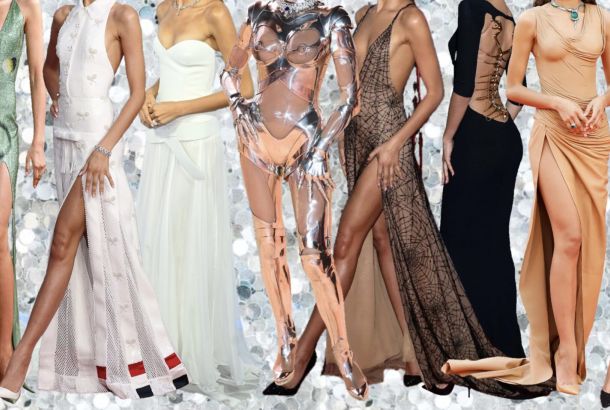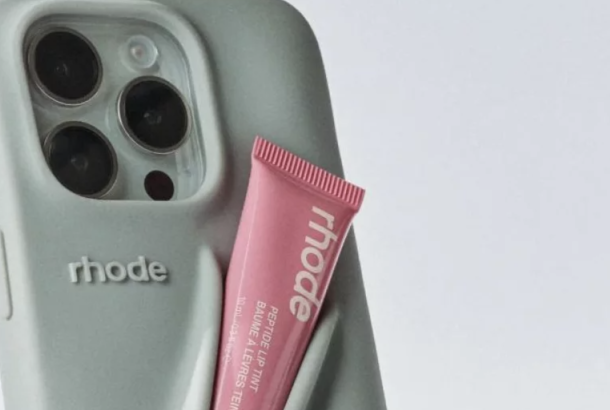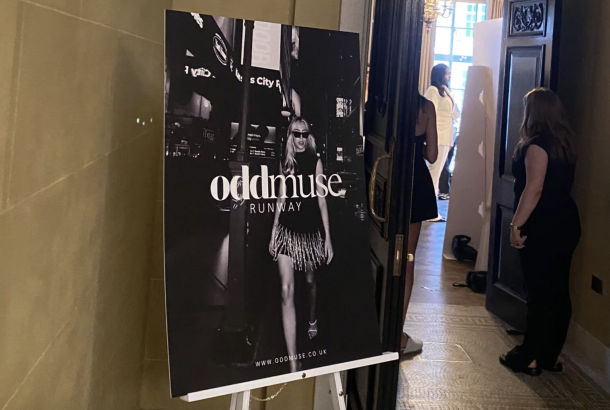The Changing Face of Fashion
Celebrity collaborations within the fashion industry have become increasingly prominent. The last decade in particular has seen a significant shift in the face of fashion. The high fashion model, well regarded within fashion circles, but otherwise often nameless to the general public, has been replaced with a known face or a household name in the form of a celebrity. The extent to which fashion and celebrities have become intertwined becomes incredibly clear by simply considering the many examples of celebrity fashion lines: David Beckham for H&M, Kelly Brook for New Look, Cheryl Cole for Stylist Pick, Pixie Lott for Lipsy, and most recently the Kardashians for Dorothy Perkins. These examples hardly even touch the surface of an industry that has witnessed celebrity and fashion become dependent on each other. However, this surely begs the question: why are celebrity fashion lines becoming so ever-increasingly popular?
Psychology offers some scientific reasoning behind this question. According to the Hovland and Yale model of advertising, an advert is more likely to be successful in selling products if the person attempting to persuade the audience is an attractive celebrity. This model takes into account how the target audience have a desire to emulate and imitate celebrities in any way, meaning that an audience is likely to buy a product in the hope that it will make them like the celebrity promoting it. This view presents the fashion industry as operating in an ongoing cycle of exposure, attention, recall and PR coverage; all of which it achieves through the celebrity which it uses to front its brand. Yet surely such a view also suggests that the fashion industry, and celebrity fashion lines, are also opportunistic, and often exploitative?
dorothyperkins.comThe Mail Online writer, Liz Jones, surely seems to think so. Jones comments on the ‘cynical greed of celebrity fashion lines’, and how ‘the number of celebrity ranges has mushroomed alarmingly of late as High Street stores clamour desperately to lure customers into parting with their cash’. Although it would be silly to suggest that there is no element of greed in celebrity fashion lines (in particular, she refers to the newly released Kardashian Kollection for Dorothy Perkins) there is also something slightly reductionist in her article. Call me naïve, but I find it highly uncomfortable to think that I am simply a victim of consumerism, conditioned by adverts which tell me I “need” a certain item of clothing, and beckoned into a store because I’ve been hypnotised by the latest celebrity staring at me from an enormous billboard. What Jones fails to take into account is why there is such a big space in the market for celebrity fashion lines, a question which cannot simply be put down to the greed of tycoons like Sir Philip Green. Green evidently recognises how celebrities have become a cultural phenomena within fashion, in that they act as the middle man (or woman) between the customer and the enormous Empire that is the fashion industry.
Take the Kardashian Kollection; the sisters perhaps do not go to the lengths that ‘proper designers do’ as Jones criticises them for, but they have never claimed to be designers. What they and other celebrity fashion lines do offer is a degree of attainability. The Kardashian sisters are feminine, curvy, hardworking, savvy, and it goes without saying, glamorous and impeccably well-groomed. Their fashion line for Dorothy Perkins reflects how female fashion choices are becoming influenced by figures like Kim who, at 5’3 and with a famously large derrier, is slightly more ‘real’ than the 5’11 high fashion model, whose never ending limbs and perfectly airbrushed body is often unattainable for the vast majority of people.
lipsy.com
What we are seeing with celebrity ranges is a more representative face within the fashion industry. Consider a programme like The Only Way is Essex. The show is a prime example of how reality television stars are also becoming significant in influencing fashion. Many of the cast members such as Billie and Sam Faiers, Lydia Bright, Jess Wright and Amy Childs, have opened their own boutiques. Similarly, some have also brought out fashion lines because of the show, such as Amy Childs for Lipsy, and Lauren Goodger for New Look. Although the never ending list of merchandise (perfume, autobiographies, eyelash ranges) can sometimes become tedious, the Towie girls have made “Essex style” popular in its own right, and along with sequins and towering heels, have brought an affordable glamour to the High Street. Not every celebrity fashion line will appeal to every single person, in fact some are rather questionable, for example I wouldn’t rush to Lipsy to buy one of Amy Childs’ dresses, as our taste in fashion differs and her collaboration simply doesn’t compliment my own style.
However, celebrity fashion lines are a good thing. We need celebrities, whether they are actresses, singers, reality television stars, or presenters, who come from different walks of life (rather than just the path of the runway) to bring variation to the fashion industry. Aspiring to a certain look because of a certain celebrity encourages people to push boundaries and try something new. Yes, the face of fashion is changing- but that isn’t a bad thing.







